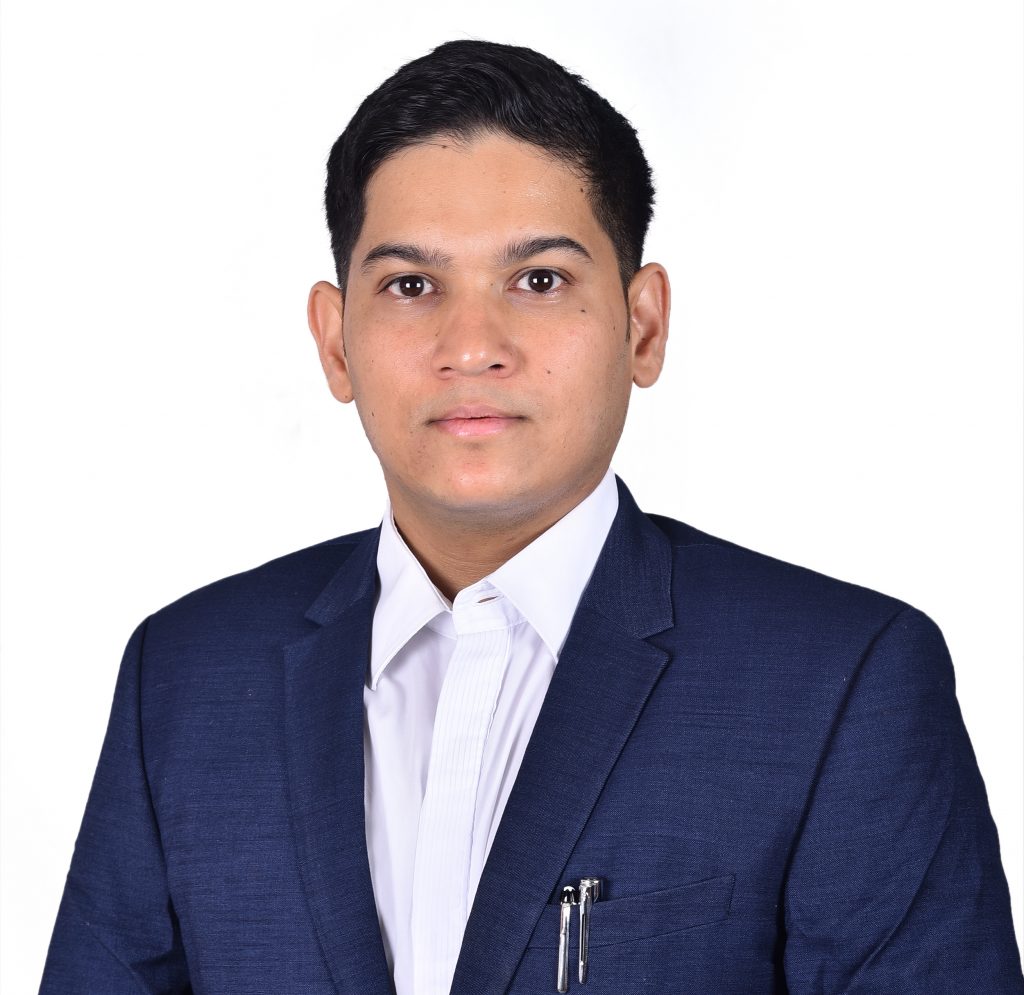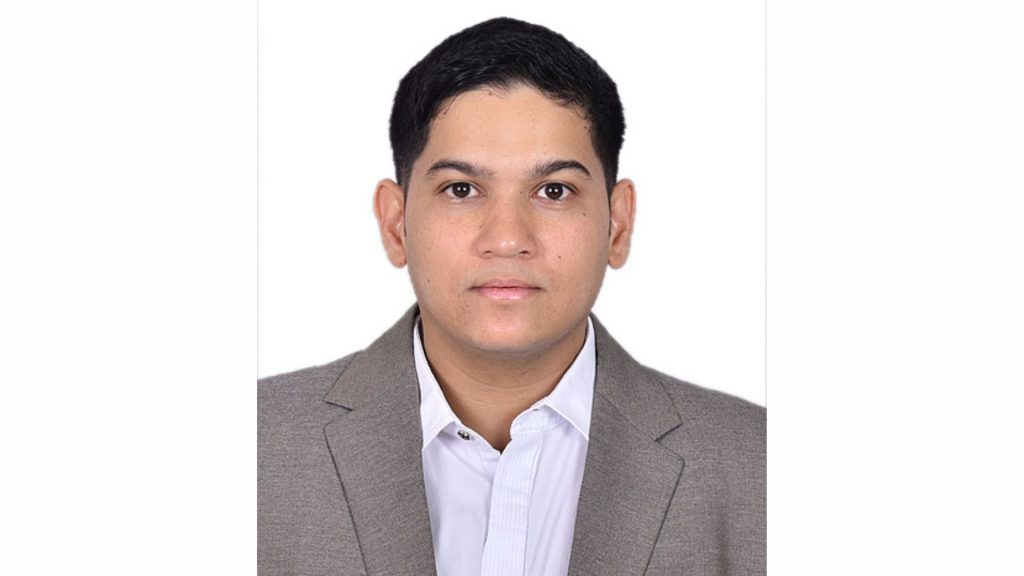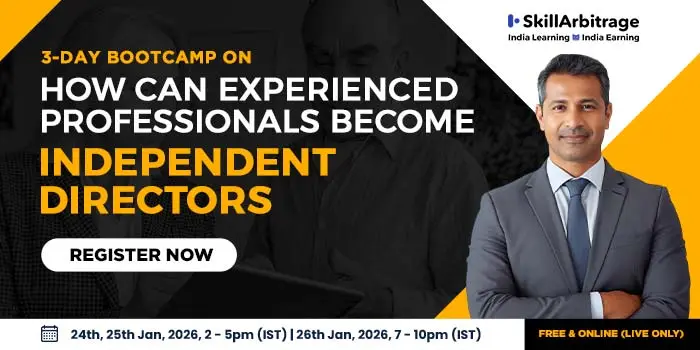This interview has been published by Anshi Mudgal and The SuperLawyer Team

Your doctoral research focuses on economic frauds with special reference to the Maharashtra Protection of Interest of Depositors Act, 1999 (MPID). How has your academic background in commerce, finance, and corporate law influenced your understanding of white-collar crimes? Could you also highlight some key gaps or challenges you’ve identified in the enforcement of the MPID Act during your research?
My academic background in commerce, finance, and corporate law has helped me develop the way I think about economic offences. Once you have grasped the mechanics of finance and corporate structures, it is easier to understand how the system is exploited.
During my research on the MPID Act, one challenge I have consistently noticed is that while the legislation is well-intentioned and aimed at protecting depositors, its enforcement often struggles because of delays in attachment and prosecution. Many times, by the time the authorities act and pursue the offender, the trail has already grown cold and recovery is nearly impossible. Another gap is the edges of enforcement and conflict of central legislation as PMLA, Companies Act, SEBI laws and the MPID Act being a state level enforcement, and derails any sense of priority in jurisdiction or proceedings.
The Act is strong, but sometimes its effectiveness can be compromised in practice through procedural delays, poor agency coordination, and attempts to strike a balance between depositors’ protection and the rights of bona fide third parties. This is where I see a need for more extensive reform and clarification.
You have handled several high-profile and complex criminal defence cases involving multi-crore corporate frauds and GST evasion. Could you share one particularly challenging case experience and how you strategized your way through it?
Certainly! One case that comes to my mind right now involved a large corporate fraud and GST evasion worth several crores – and it was particularly significant as it was one of the first arrests in Maharashtra specifically for fraudulent availment of input tax credit, but more than the amount, it was the structure of the operation that made it really demanding for me. It was a well-orchestrated network of multiple shell companies, benami directors, and several documents that had been carefully planned to appear legitimate. By the time I stepped in, the arrest had already been made.
From the remand hearing stage itself, I appeared for the accused and continued representing them through the entire process until we successfully secured bail.
We also highlighted violations of procedural safeguards under the CGST and MGST provisions. Beside this, we took help from an independent forensic accountant who examined the financial transactions. Our goal from the beginning was to show that these were not necessarily fraudulent movements of money, but could also be read as genuine business activity with commercial rationale.
You successfully defended clients in a multi-crore Bitcoin scam case, an area where financial fraud converges with evolving technologies. With the advent of the new Digital Personal Data Protection (DPDP) rules, how do you see defence strategies evolving in cases involving cryptocurrencies and digital financial crimes?
Yes, I have defended some clients in Bitcoin scam cases, including matters related to one of India’s biggest cryptocurrency frauds, the GainBitcoin scam case. This was a massive Rs 6,600 crore Ponzi scheme that was allegedly masterminded by Amit Bhardwaj and his brother Ajay Bhardwaj, and it really opened my eyes to how technology and financial laws are starting to collide. Because of the introduction of the new Digital Personal Data Protection Act, I think defence strategies are going to change in very different ways.
I appeared for my clients from the remand stage itself and continued through the entire process until we secured bail.
For one, we now have a solid legal basis to question how agencies are handling personal digital data, how it’s collected, stored, shared. In crypto cases, most of the evidence is digital, so if investigators skip steps or mishandle that data, we can raise serious doubts in court. Earlier, we didn’t have a clear law backing that argument, now we do.
Also, cryptocurrency in India still sits in a grey area. It’s taxed, monitored under money laundering laws, but still not officially recognised as currency. And this confusion gives us room to argue that our clients were operating within what was legally understood at the time, even if the law was unclear.
As part of your professional and social commitment, you’ve provided pro bono legal aid to under-trial prisoners and represented numerous indigent accused across Maharashtra’s trial courts. What systemic barriers have you observed in ensuring fair representation for under-trials, and how can the legal fraternity work towards making justice more accessible for marginalized communities?
Working in trial courts across Maharashtra and providing pro bono aid to under-trials has helped me understand how the system functions on the ground. One of the biggest issues, I would like to share, is the absolute lack of legal aid lawyers compared to the number of under-trial prisoners(UTP). Most legal aid lawyers, I know, are handling 200+ cases at once, that’s why it’s not surprising that many under-trials meet their lawyers for the first time in court. There’s no time for proper case prep, and that really affects the outcome in my perspective.
Let me share two specific cases that highlight these challenges. I appeared for an accused in a case punishable under Section 328 IPC and other relevant sections, who had been in jail for five years. While I successfully secured his bail, he didn’t have the financial condition to furnish the surety. The only viable option was to file a discharge application, which I presented before the Baramati District Court, and the court was pleased to discharge the accused from the case.
In another case, I represented a person charged under Section 302 IPC who was languishing in jail for six years. I conducted the entire trial, and he was ultimately acquitted by the Pune District Court. These cases show how prolonged incarceration affects the most vulnerable.
Even when bail is granted, release gets delayed, sometimes for weeks or months, just because of delayed paperwork and sometimes, miscommunication between courts and jails. I have seen people stay behind bars for months after getting bail, which is truly heart-breaking. Add to that the language barriers, missing documents, and financial struggles, and you have got people stuck in the system with no help.
If you ask me about my opinion, then I would suggest that we need more trained legal aid lawyers, regular jail visits, digital tools to track cases, and also we need to make communities aware about their basic legal rights. If we, as lawyers, law students, bar associations, and NGOs, come together and build a more connected, grassroots-level support system, it can make a big difference.
You have authored several papers and conducted numerous lectures and seminars. In your view, what role does academic writing and legal scholarship play in shaping legal practice? What advice would you offer to young legal professionals looking to contribute to this space?
For me, academic writing has played a meaningful role in connecting and relating legal theory with day-to-day practice. With the help of writing and research, I have been able to step back from the routine of litigation and examine the different patterns and challenges within the legal system. Well-reasoned legal scholarship usually finds its way into judgments, reforms, and legal education, and I have seen how it can directly influence how the law is interpreted and applied.
To all the young professionals, I would recommend starting with small, focused pieces, perhaps a case law or analysis of a recent development in your area of practice. Choose topics that reflect current legal challenges or procedural issues you observe in court. Try to show your practical experience with the help of your writing. Engage with ongoing academic conversations, attend seminars, and collaborate with others in the field. Writing regularly with purpose sharpens your thinking and builds your skills.
You’ve appeared as counsel across various jurisdictions, including trial courts and the Bombay High Court, and have assisted in representing prominent politicians, bureaucrats, and celebrities. In the initial phases, what were the endearing experiences that laid the foundation to your practice?
In the early years, what really changed me was the time I spent observing and working with senior advocates at the Bombay High Court. Watching them argue, handle the pressure, and understand tough situations have taught me more than any class or lecture ever could. I was fortunate to assist in matters that ranged from bail to high-stakes commercial disputes, and that variety gave me a good solid base to start my own practice.
I still remember my first proper argument in court, it was a small matter, but for me, it was a big moment. The judge asked a tough question, and while I fumbled a bit, I also learned how to hold my ground. Those moments, when you get knocked a little and then find your footing, are mostly the ones that stay with you.
Working with senior counsel also taught me how much court preparation matters. And when I started assisting in high-profile matters, I realised a new thing about managing the expectations of well-known clients, is a skill in itself.
Looking back, it was those early experiences, good and tough, that gave me both clarity and confidence. They still guide me on how I approach my cases today.
Looking back at your robust and diverse career, what inspired you to pursue law? What was your original vision, and how has that evolved over time? What are your aspirations going forward?
To be honest, law was not always the plan. Coming from a family business in finance and share broking, I was naturally exposed to the financial world from an early age. I even pursued an MBA in Finance, thinking I would follow that path. However, my interest in law kept growing stronger than anything else.
I didn’t grow up with the idea of becoming a lawyer; it came more from curiosity and also with a need to find something that combined structure with impact. Over time, I realised how powerful the law could be in changing lives and solving problems. That’s when it became more than a profession and started feeling like a purpose.
My early vision was probably moulded by the usual excitement of arguing in court, but as I started handling cases, my understanding of the law grew more. I began to see it less as a tool to win arguments and more as a way to balance justice.
Now, my focus is on deepening that expertise, working on policy-heavy cases, white-collar crimes, and contributing to the law around data and tech laws. I also work on the corporate advisory side. A major part of my corporate practice involves drafting and negotiating commercial agreements, including non-disclosure agreements. I regularly advise companies on confidentiality matters and information security protocols that align with both legal requirements and business objectives.
This dual exposure has helped me a lot in understanding how preparation and preventive corporate advisory go hand in hand.
In the future I would like to build a practice that will represent and also educate, mentor to create awareness about legal reform. The law is always evolving, and I want to keep evolving with it.
What advice would you give to law students and young professionals hoping to build a career in economic offenses and financial crime litigation? Is there a particular roadmap or mindset you’d recommend to help them stay ahead in this rapidly evolving space?
Economic offences are really wide, which makes it hard to grasp it all at once. If your goal is to start a practice focused on economic offences and financial crime litigation, I would suggest learning as much as you can about financial systems and how they actually work. This area is much more about understanding how money travels in the economy and how the regulators generally think. So, alongside your legal studies, make sure you have spent time on basic accounting, and the financial regulations.
In your early years, try to work alongside lawyers, or firms dealing with white-collar crime, with the ED or CBI issues, and with cases of corporate fraud. Try to watch closely how investigations are conducted, and how documentation is compiled, the process of taking statements, and how enforcement agencies operate. This will give you an initial understanding of the concept.
Given the high-stakes and often intense nature of litigation, how do you maintain your composure in stressful situations? What practices help you manage pressure while also taking care of your mental well-being?
Litigation matters are intensive, long hours, and involve tight timelines, high stakes. It’s very easy to lose your balance if you don’t actively protect it. With time, I have learnt that managing pressure means building the capacity to carry stress without letting it overwhelm you.
I maintain a strict routine of one hour of meditation and one hour at the gym daily. This combination has become non-negotiable for me, regardless of how demanding my case load gets. I have also become very mindful of boundaries. I have stopped glorifying all-nighters. I delegate when I need to, I disconnect when I must.
Law can really push you. If you don’t pace yourself, you’ll burn out before you build anything that lasts.
Get in touch with Ashish Patankar –





fdfgd
Bhjn
test